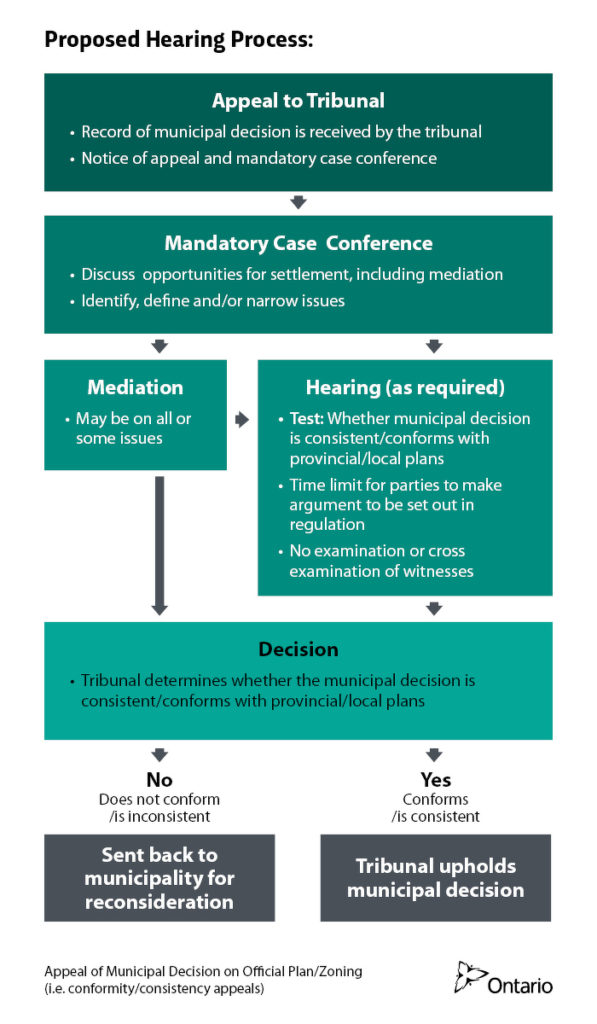 By Staff
By Staff
February 22, 2019
BURLINGTON, ON
This will come as a bit of a jolt to anyone who wants to be involved in appeals to decisions made by city council on development applications.
A Gazette reader sent us a notice she got from the Local Planning Appeal Support Centre advising her that: “The Government of Ontario has made a decision to close the Local Planning Appeal Support Centre (LPASC). LPASC has until June 30, 2019 to wind down the business.

So much for process – how do people navigate through the paper work and the procedures?
Effective immediately, LPASC will no longer be accepting new requests for professional services from the public. During this wind down period, LPASC is committed to continuing to serve, to the best of its ability, those clients who have retained its services. LPASC staff will be in contact with those clients with further details shortly.
If you have any questions, please send an email to info@lpasc.ca <mailto:info@lpasc.ca> or call 1-800-993-8410.
The questions should also be directed to Burlington’s Member of the provincial Legislature. You might ask just how this decision came about.



















Kevin is absolutely correct. Any resident group that takes a City or Developer to LPAT is unfortunately wasting their time. The cost is prohibitive, and as Kevin stated it is difficult to find not only a planner but a lawyer who does not have a conflict of interest.
Resident groups need to spend their time doing what they can to convince our Premier, perhaps with the help of our MP Jane McKenna to convince him that it is time for City Councils to take responsibility for the approval of development applications. The time has come for City Councils to stop using LPAT as a “way out” when dealing with developers.
I have a true cost saving measure for the Government of Ontario – get rid of LPAT completely. Let residents decide with staff where the growth mandated by the province should be located. Oakville did this, why didn’t Burlington?
I’m tempted to agree with you Penny. The whole LPAT process is cumbersome, bureaucratic, and heavily skewed in favour of developers. The average citizen has neither the time nor the resources to devote to researching and preparing for hearings. The costs associated with mounting a challenge are overwhelming.
My concern is that the provincial government is so fixated on intensification that they don’t comprehend the negative externalities associated with cramming mega millions of residents into the GTA. The broader issue is the environmental degradation that is occurring from having too many people in a geographic space that can’t accommodate millions of more people. We are becoming like Southern California, and everyone has seen the consequences associated with excessive growth and congestion.
The Ford government needs to focus on decentralization. We have communities in this province that are literally stagnating as older residents are dying, young people are moving out, and their industries are closing up (e.g. Sault Ste. Marie, Chatham, Cornwall, Sudbury, etc.). Time to shift the paradigm…not just move the pieces on the chessboard.
Well said Stephen. The long tradition of the Ontario of the Ontario Municipal Board (we are the only province in Canada that had such a regulated development bureaucracy) has simply morphed into the Local Planning Appeal Tribunal, another cumbersome regulator that continues to stack the deck against citizen engagement in their own community’s future.
The Ford government’s mission seems to be to favour over-development of already congested cities over environmental stewardship, continuing to convert the best agricultural and environmentally fragile lands in Ontario into residential, commercial and industrial uses while ignoring other municipalities with poorer agricultural conditions that could instead sustain more residents and economic development.
It is an unsustainable short-term vision that will only hasten climate change and reduce the livability of the thriving cities we have in this province. A broader vision of development over our whole province is required, and it looks like we can’t count on our provincial elected officials to formulate it. It will be up to municipalities and their citizen groups to take on this important task.
I have mixed feelings about this planned closure… I have dealt with the LPASC off and on since we filed our appeal on the development in the Orchard. LPASC were helpful in providing information on how to file the appeal itself, including reviewing our submission, but despite our appeal being deemed valid and seemingly checking all the requirement boxes for support we were denied professional services support. Requests for professional services can only be requested after you are deemed valid by LPAT, and unfortunately for us this application ate a week of our precious time to submit case records and synopsis and to secure professionals to assist.
I think where LPASC would have been very beneficial would have been in helping residents to prepare to delegate to council prior to decisions being made. This would help delegations talk to specific areas of concern with PPS, OP etc… with having a bit of weight behind the comments as they were supported by LPASC. In our case LPASC did not exist for the bulk of our delegations. Despite our group not having the greatest experience with LPASC overall, it was the ONLY resource for residents to tap into which, in my opinion, further reinforcing the “David vs Goliath” feeling that most of us have had during delegations and LPAT appeals.
Bottom line for residents, unfortunately, is that you need to engage lawyers and planners (preferably during delegations) on your own dime to have real impact and let me clear it is not cheap! If that wasn’t tough enough, finding a land use planner to bring on board is extremely challenging. I know our group, and others in Burlington struggled to find a planner without a conflict of interest, keeping in mind many planners find most of their business with developers and not residents. Our appeal, due to the delays from the professional services application with LPASC and the lack of “available” planners we were unable to secure one for our appeal. Even with my credentials and 19 years of experience in Civil Engineering, I am consider a “lay” person throughout the process so my claims and interpretation do not hold the same weight as a planner stating the same thing.
Bottom line, it is important to make your case for or against a development application PRIOR to a decision being made at council. Engage your Ward Councillor in your efforts as well, hopefully they support you through the process as well. Avoid appeals if at all possible. Hiring professionals early on will increase your chances of success and dramatically reduce your costs overall. Unfortunately the whole thing is not a democratic process, money and credentials talk, which ultimately puts residents at a HUGE disadvantage overall despite being stakeholders in the process.
Well stated, Kevin, I completely agree with you, being part of Citizens’ Plan B (Waterfront Hotel Redevelopment).